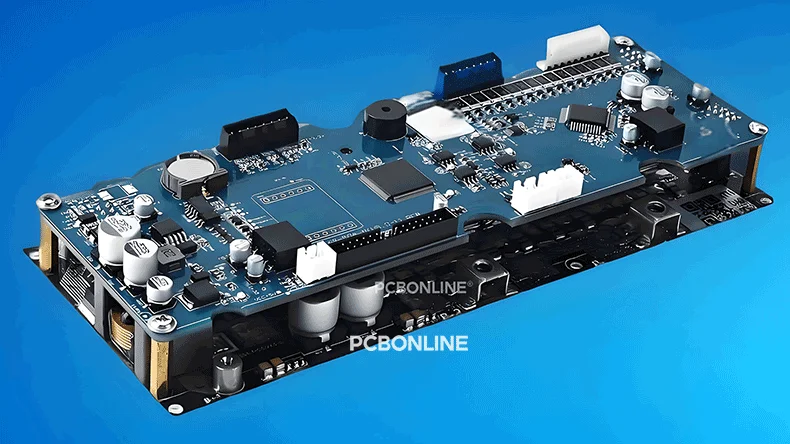
In a lithium-ion battery pack, its battery management system (BMS) acts as the brain to manage the working states of the pack. As lithium-ion battery packs are the power supply of electric vehicles, hybrid vehicles, boats, motor bikes, golf carts, and so on, high-quality manufacturing of battery management systems for the battery packs matters. PCBONLINE, a one-stop PCBA manufacturer for BMS and CCS (cell connection system) for battery packs, provides this article to introduce what a BMS for lithium-ion battery packs is.
Introduction to Lithium-Ion Batteries and Battery Pack Structures
Lithium-ion batteries are a popular power source for a wide range of devices, from consumer electronics to electric vehicles (EVs). They are favored for their high energy density, long lifespan, and light weight. A single lithium-ion battery is a cell, but to meet the power demands of larger applications, multiple cells are connected in series and parallel to create a battery module.
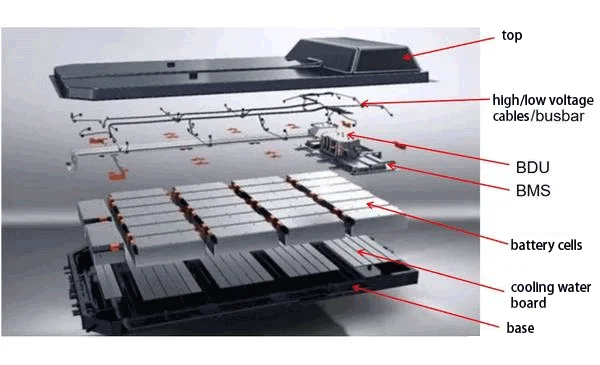
A typical battery pack consists of the following key components:
- Lithium-ion cells: The fundamental units that store and release electricity.
- CCS (cell connection system): Flexible PCB CCS, FR4 PCB CCS, FDC (flexible die-cutting circuit) CCS, and wiring cable CCS are used to connect the cells and collect voltage and temperature changes from each cell, and transmit the signals to the BMS. A CCS is essentially a PCBA module.
- BMS (battery management system): A BMS monitors and manages the battery pack's functions by monitoring and controlling the battery cells. It also communicates with the vehicle/boat to show the states of the battery packs. A BMS is also essentially a PCBA module.
- The enclosure and structural parts: They provide the casing and mechanical support of the cells, CCS, BMS, and the pack.
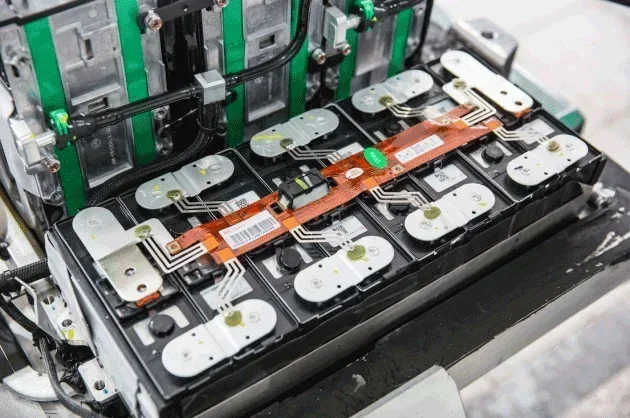
The complexity of a battery pack and its structure depends on its application, from small packs for an electric bike to large, high-voltage packs for an EV and even an electric ship.
The Battery Management System: Components and Functions
The battery management system for lithium-ion battery packs is an electronic module to oversee and regulate the battery pack. It ensures the battery operates safely, efficiently, and for an extended lifespan.
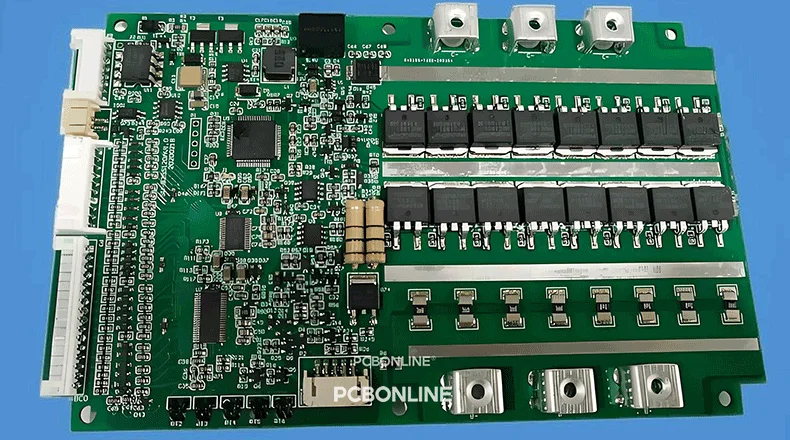
The BMS is essentially a PCBA, or Printed Circuit Board Assembly, populated with various electronic components. Key components of a BMS PCBA include microcontrollers (MCUs) for processing data, heat sinks, capacitors, inductors, busbars, and connectors.
The core functions of a BMS are:
- Protection: This is the most vital function. The BMS continuously monitors the battery's operating conditions to prevent dangerous situations.
- Overcharging/over-discharging: The BMS stops charging or discharging when cell voltages reach predetermined safe limits, preventing damage and a shortened lifespan.
- Over-current: It prevents excessive current flow during charging or discharging, which can cause overheating.
- Over-temperature: The BMS uses temperature sensors to ensure the battery operates within a safe temperature range, preventing thermal runaway and potential fire.
- Monitoring: The BMS provides real-time data about the battery pack's status. It monitors parameters such as -- Cell voltages: It tracks the voltage of each individual cell to ensure they remain consistent. Current: It measures the total current flowing in and out of the battery pack. State of Charge (SoC): This indicates the remaining capacity, similar to a fuel gauge. State of Health (SoH): This metric provides an estimate of the battery's overall condition and its expected lifespan.
- Balancing: Individual cells in a battery pack can have slight variations in capacity and self-discharge rates. Over time, these differences can cause some cells to be overcharged or undercharged, reducing the overall pack performance. The BMS addresses this with a cell balancing function, either passively by dissipating excess energy as heat or actively by transferring energy from higher-charged cells to lower-charged ones.
Standard vs. Custom BMS and the Importance of PCBA
When selecting a BMS, manufacturers typically have two main options: a standard, off-the-shelf BMS or a custom-designed BMS.
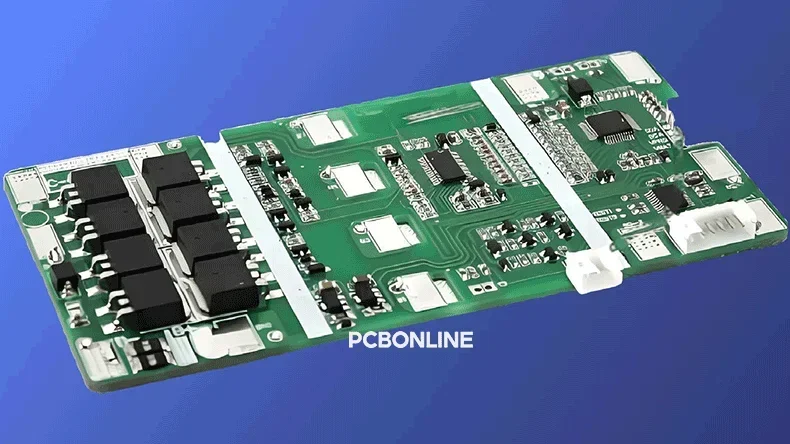
Standard BMS are pre-engineered solutions that are readily available. They are suitable for simple, common applications that have fixed requirements for voltage and capacity. These systems typically offer basic protection features to prevent catastrophic failure, but their monitoring and balancing functions may be limited. They also have fixed physical dimensions and may not be optimized for specific applications.
In contrast, a custom BMS is designed and manufactured to meet the specific requirements of a unique application. This approach offers significant advantages, including:
- Tailored performance: The BMS can be optimized for the exact power output, efficiency, and lifespan needed for the end product.
- Design flexibility: A custom BMS can be designed with a compact or unique form factor, allowing it to fit into irregularly shaped spaces.
- Advanced features: Custom systems can include more sophisticated monitoring, balancing, and communication features, such as advanced algorithms for State of Health (SoH) prediction or integration with cloud-based monitoring.
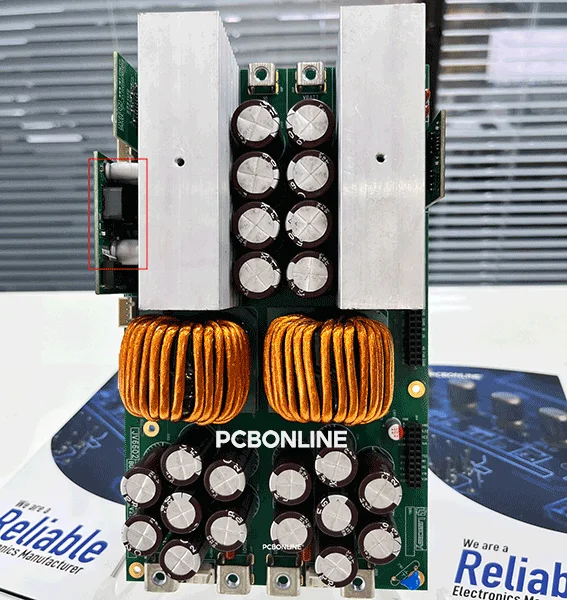
BMS PCBA
The PCBA is the most critical part of any BMS. For high-power, high-current applications—such as BMS for battery packs in EVs or boats—the PCBA must be manufactured with exceptional quality and attention to detail. This involves:
- Thermal dissipation: High currents generate significant heat. The PCBA must be designed with effective heat dissipation in mind, using features like large copper busbars, heat sinks, and specific component layouts.
- High-current paths: The copper traces on the PCB must be wide enough to handle high currents without overheating or causing voltage drops.
- Reliability: Given the safety-critical nature of a BMS, the PCBA must be manufactured to the highest standards to ensure reliability and durability under demanding conditions, including resistance to vibration.
One-Stop CCS Manufacturer PCBONLINE with R&D Capabilities
PCBONLINE a leading PCBA manufacturer with extensive experience in the high-power, high-current PCBA manufacturing for battery management systems in lithium-ion packs. We have fabricated many robust and reliable PCBAs for a variety of BMS projects, ensuring that the BMS of the battery pack is built to the highest standards.
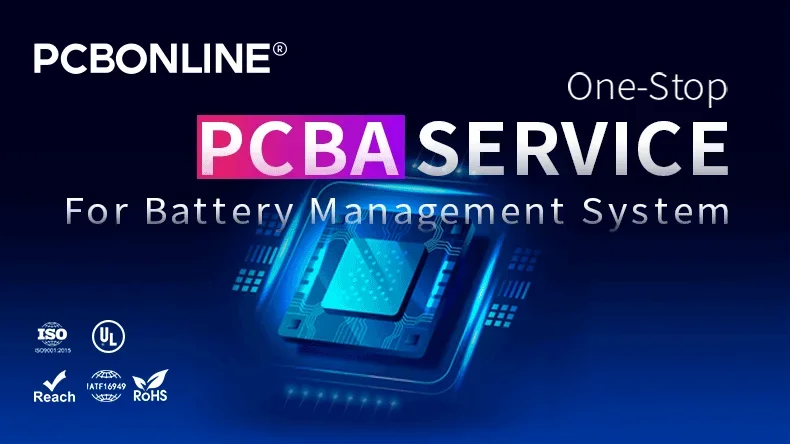
If you haven't completed your battery pack design, including the BMS and the CCS, you can let us design for you. You can draw the outline of the battery pack and tell us the line connection sequence of the cells; if possible, send the 3D drawing of the entire pack so that we can understand your CCS and BMS demands.
PCBONLINE can help develop a custom BMS for lithium-ion battery packs according to the R&D requirements provided by you, providing a full set of BMS R&D and design services, including hardware, software, structure, etc.
We take care of BMS and CCS manufacturing traceability and print a QR code on the FPC/PCB/integrated busbar PCBA that contains all the information on the manufacturing operations, time, and specs.
Quality is paramount. We focus on weight control to ensure the consistency of all the PCBs, busbars, structural parts, and assemblies.
All the inspections during the BMS PCB manufacturing and assembly are 3D, including SPI, AOI, and X-ray. The high-accuracy images and dimensions are retained for 5 years for traceability.
We provide one-stop electronics manufacturing for both the CCS and BMS according to your battery pack demands.
We have strong manufacturing capabilities and technical experience in new energy automotive and energy storage electronics, especially thermal and electric management.
To get a quote for your BMS project for boats and even the entire battery pack, please contact info@pcbonline.com. Besides BMS, PCBONLINE can also manufacture the
Conclusion
A BMS is the brain of the battery pack. If you need a second development on standard BMS or custom BMS manufacturing, partner with PCBONLINE. PCBONLINE provides R&D and manufacturing for the BMS for lithium-battery packs, and supplies the busbars, blister brackets, nickel sheets, wiring cables, and standard BMS for any CCS/BMS/battery pack projects. If you want to develop your CCS or battery pack, please get in touch with PCBONLINE.
Battery Management System Manufacturing at PCBONLINE.pdf
CCS Product Introduction - PCBONLINE.pdf







